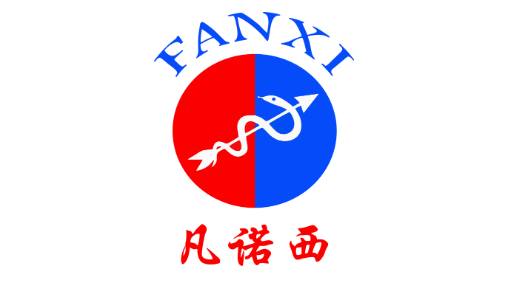Profile
Chen Hulin, General Manager of Chengdu Huide Pharmaceutical Technology Co., Ltd. (“Huide” for short). In 1996, he graduated from West China University of Medical Sciences in pharmaceutical chemistry. In 2002, he graduated from Sichuan University in MBA. In 2007, he founded Shanghai Huide Pharmaceutical Technology Co., Ltd. and served as general manager.
As early as 2006, the concept of rare diseases was introduced into China from European and American markets. However, at that time, no enterprise in China was willing to engage in the R&D of orphan drugs due to the extremely high investment in R&D, great risks and unclear definition of rare diseases.

In 2008, Chen Hulin came up with the idea of developing orphan drugs. Unfortunately, the policy and regulatory environment of the pharmaceutical industry in China at that time could not support the development of orphan drugs. Therefore, he stopped it.
In 2015, he got a lot of prospective information about clinical orphan drugs by chance, which gave him the motivation to restart his orphan drugs project.
In 2016, Chen Hulin led his team to sort out systematically orphan drugs. He reached out to patients to carry out research and found that there was a huge and urgent demand for orphan drugs in China.
In 2017, Huide began to research genetic drugs for the treatment of rare diseases such as thalassaemia. In the process, Chen Hulin had a deep understanding of the difficulties in promoting orphan drugs in the context of China’s pharmaceutical industry.
Firstly, it is difficult to screen and diagnose rare diseases. There are few authoritative experts in rare disease diagnosis and treatment in China, which leads to misdiagnosis of patients with rare diseases.
Secondly, the treatment for rare diseases is expensive. The vast majority of patients cannot afford this long-term and high-cost treatment.
Finally, the policy and regulation support in China needs to be improved. Technical barriers and cost investment in the R&D of orphan drugs are very high. Even if the price is cut in half, patients still cannot afford it.
Chen Hulin suggested that the registration of orphan drugs should be separated from that of ordinary ones and the funding threshold for the R&D of generic orphan drugs should be lowered, which would encourage enterprises with a sense of social responsibility to take a part in it. That would be significant for promoting the R&D of orphan drugs.
When talking about the edges of Chinese enterprises in making breakthroughs in orphan drugs, Chen Hulin said that, due to large population, there are a huge number of patients with rare diseases. Therefore, samples of drugs for clinical trials developed by Chinese are far more than those of European and American ones.
In his view, Chinese enterprises can develop technical cooperation with European and American enterprises that have products and technologies, so as to achieve a win-win result and benefit patients with rare diseases in China.
Chen Hulin pointed out that, despite the fact that the strong attraction of domestic market to foreign orphan drug enterprises, some original orphan drugs enterprises balk at the idea of the research and development of such drugs, due to the China’s actual conditions, underdeveloped insurance industry and the large number patients with rare diseases and their limited affordability.
At present, most rare diseases are caused by genetic problems. However, it is costly and time-consuming to carry out drug research and development at the genetic level. Most local enterprises lag behind European and American ones in this field, so it is difficult for them to continue their R&D work.
The good thing is that most traditional industries have undergone remarkable changes amid the popularity and deep application of the Internet. In terms of medical industry, the Internet, as a medium and tool, makes medical information transparent and breaks the regional blockage, thus making a lot of drug information open in real time.
Although facing many difficulties and challenges, Huide is currently the only enterprise focusing on the R&D of orphan drugs domestically, from the perspective of competition. Through in-depth research with rare diseases groups and relevant public welfare organizations, Huide has mastered the market capacity and demand direction of orphan drugs in China, thus taking the lead in this regard.
In the field of the generic orphan drugs, Huide aims to grow into a leader in the domestic orphan drugs industry.
Huide was founded in 2007 in Shanghai. Its wholly-owned subsidiary came to Chengdu in 2010 and settled in Tianfu Life Science Park in 2012.
In the field of biomedicine, Chen Hulin believes that governments, industrial parks and enterprises in inland cities need to learn more from those in Yangtze River Delta region in terms of the preciseness of subdivisions and the depth of research.
Chen Hulin said that he would go to the Yangtze River Delta region to exchange the latest industry information and develop cooperation opportunities with his partners every month.
There is little difference in the R&D environment and laboratory operation between Chengdu and Shanghai. In the respect of advancing marketing authorization holder system, Chengdu should follow Beijing and Shanghai in its pursuit of being at the forefront of national pilots.
He hopes that the government can roll out more guiding policies, make more on-the-spot study and investigation to the new trends in the developed areas of the pharmaceutical industry, and encourage local pharmaceutical enterprises to explore the development model under the new situation.



Park WeiChart